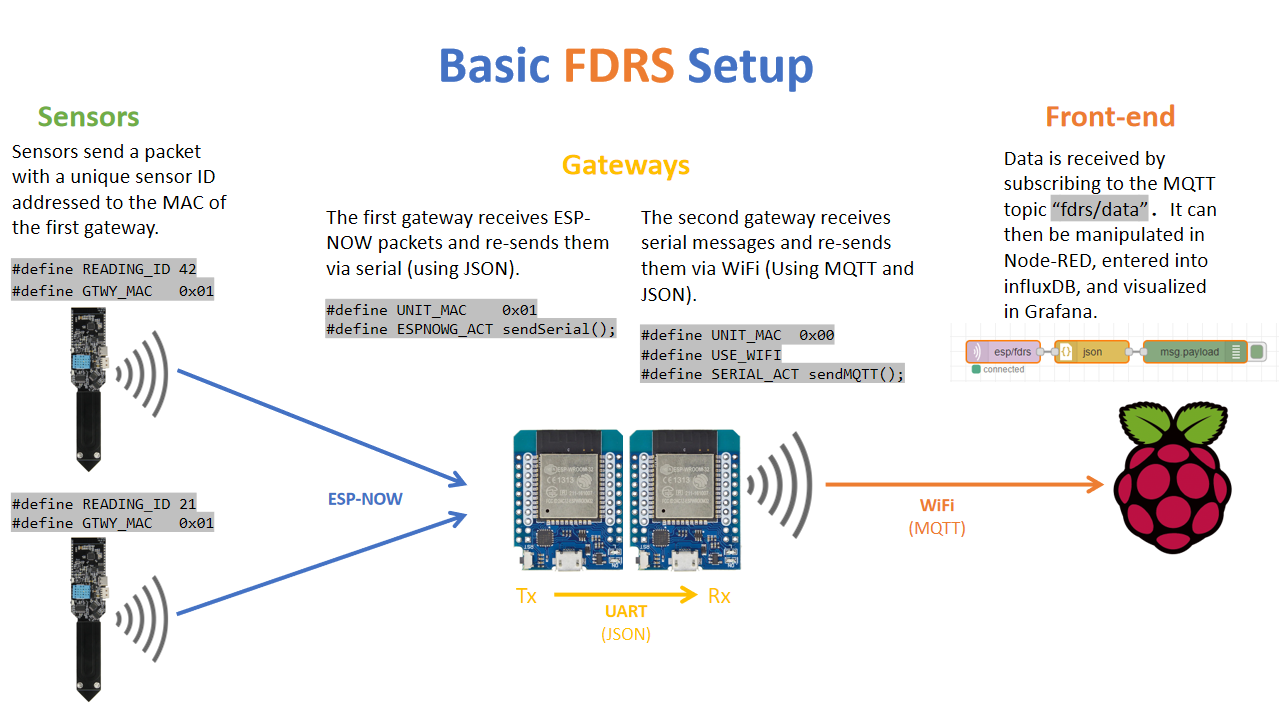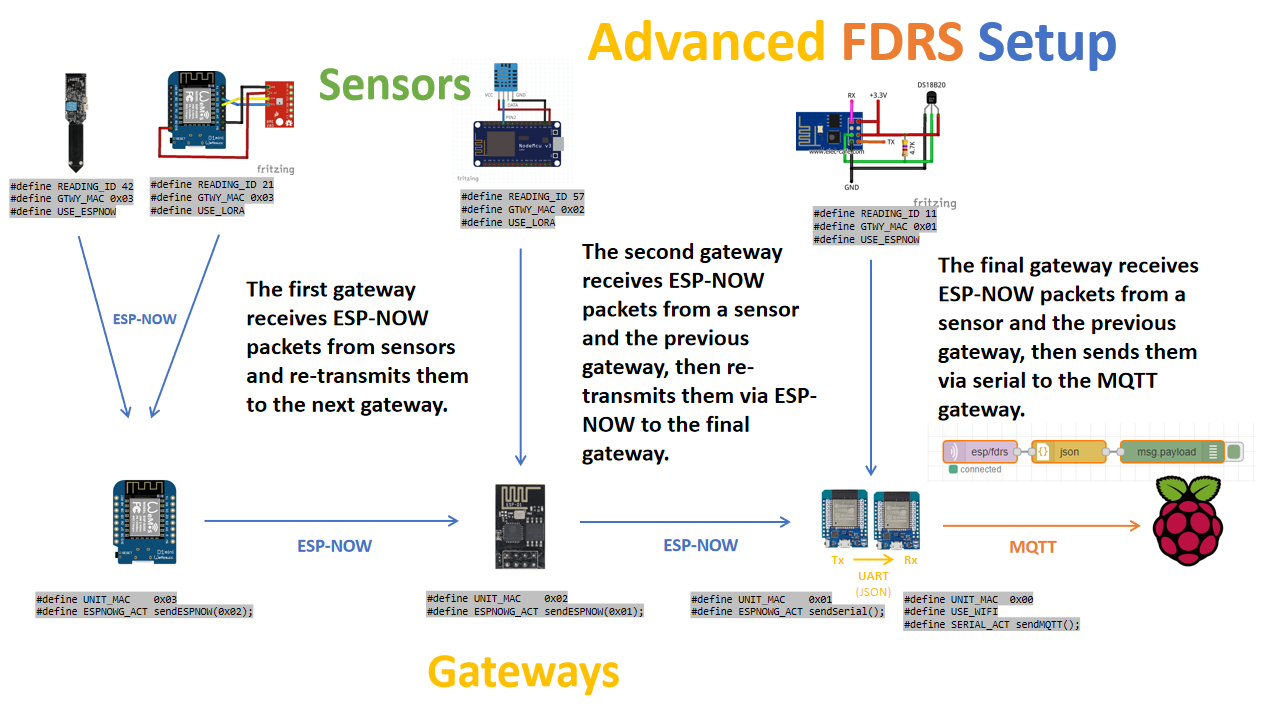| examples | ||
| extras | ||
| src | ||
| .gitignore | ||
| keywords.txt | ||
| library.properties | ||
| LICENSE | ||
| README.md | ||
Farm Data Relay System
In loving memory of Gay Holman, an extraordinary woman.
The Farm Data Relay System is an easy way to communicate with remote devices without relying on WiFi or LoRaWAN. It is designed to use the ESP-NOW and LoRa protocols to establish lines of low-power, low-cost gateways and repeaters that provide coverage to remote devices. The system can be used to exchange sensor readings or control messages in situations where it would be too difficult or energy-consuming to provide full WiFi/LoRaWAN coverage.
FDRS devices are classified into two types: gateways and user nodes. Gateways comprise the infrastructure of the network, moving data in pre-determined directions to provide coverage to all devices. User nodes allow the user to exchange data with the gateways. Each gateway is identified with an 8-bit physical hex address (MAC), while nodes use 16-bit integers to identify datapoints as they move through the system.
Getting Started
- To install FDRS, download the project folder by clicking the “Clone or download” button and then clicking “Download ZIP”. You should then move it to your Arduino 'libraries' folder to complete the installation. You will then be able to access all of the FDRS libraries and example sketches from the Arduino IDE.
- After installing, edit the 'src/fdrs_globals.h' file with your WiFi credentials and other global parameters.
Install the libraries that you need:
- ArduinoJson (mandatory)
- LoRa library by sandeepmistry (required if using LoRa)
- PubSubClient (required for MQTT Gateways)
- ArduinoUniqueID (required for LoRa nodes)
User nodes
Nodes can be described as sensors, controllers, or both:
- A Sensor node aggregates data into a packet, then sends it to a gateway via ESP-NOW or LoRa.
- A Controller node registers with a gateway to begin receiving data from it, then subscribes to the specific READING_ID(s) that it will listen for data from. When data arrives from an ID the device is subscribed to, a callback function is activated containing the data. Currently this is available only on ESP-NOW devices.
Gateways
Gateways listen for packets over ESP-NOW, LoRa, UART, and/or MQTT, then re-transmit the packets using one or more of the same interfaces.
Front-end
You can access your data using a Raspberry Pi (or other computer) linked to an FDRS Gateway device via either UART (serial-to-USB) or MQTT. Node-RED is my favorite platform for accessing/manipulating data on the front-end, and InfluxDB+Grafana is the dream team for storage and visualization.
Future Plans
A few things that I intend to add are:
- More sensor and controller sketches! If you have designed any open source hardware for ESP32 or 8266, please contact me and I will provide support for your device in this repo.
- Support for several new devices and protocols: ethernet, nRF24L01, 4G LTE, and the E5 LoRa module from Seeed Studio.
- Channel Activity Detection (CAD) and some improvements for LoRa, including controller capabilities.
Thank you
...very much for checking out my project! I truly appreciate everyone who has reached out with contributions and assistance, especially those featured in the "Contributors" section. If you have any questions, comments, issues, or suggestions please don't heasitate to contact me at timmbogner@gmail.com or open a discussion here on Github.
Winter is coming, which means my budget will be quite thin. If you are having fun with FDRS, please consider supporting me so that I can spend more time building it.
Many thanks go to the ever-instructional Andreas Spiess. His insight and ideas took this project from a roughly-hewn stone to the "diamond" you see today.
It is a great honor to have been featured on Hackaday!
Random Nerd Tutorials was also an indispensable source of ESP knowledge. If you are a beginner and trying to learn more about microcontrollers, I highly reccomend starting there.
Development of this project would not have been possible without the support of my former employer, Sola Gratia Farm of Urbana, IL, USA. Sola Gratia is a community-based farm dedicated to growing high-quality produce and sharing it with those in need. Thank you.

